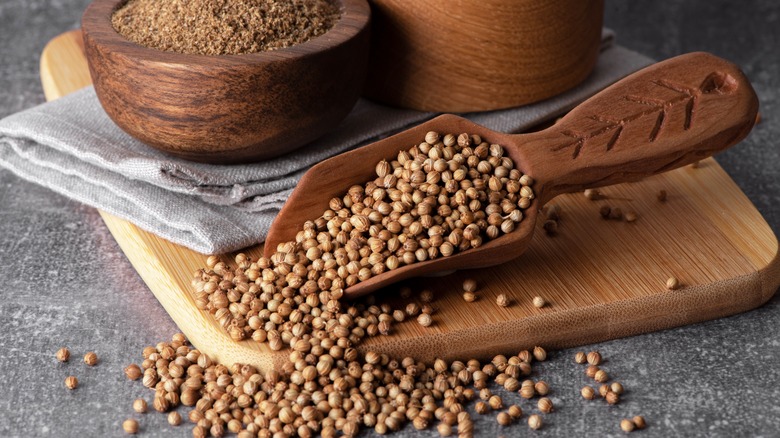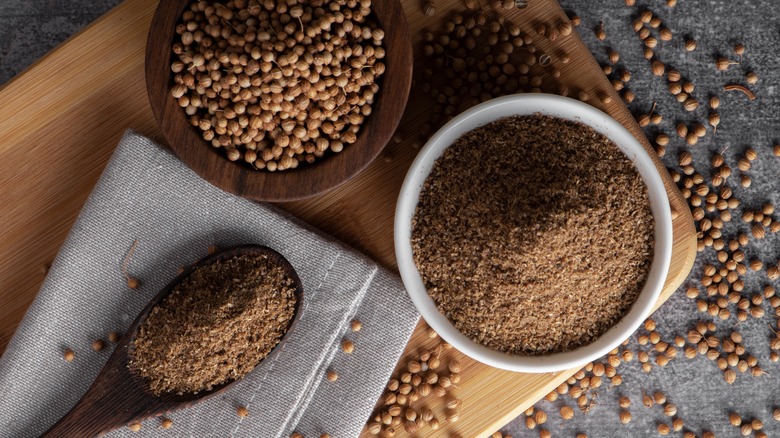You Should Start Using More Coriander In Desserts. Here's Why
For those who didn't grow up with a spice drawer, or even a spice closet, to wiggle into and sift through every time your parents decided to cook or bake, you probably aren't super familiar with all the nuances between spices — like how nutmeg is highlighted by nutty and clove-like flavors or how paprika is actually pretty sweet and pairs beautifully with garlic. There are hundreds of spices and herbs to use in thousands of different combinations to create a rich and flavorful meal, but one spice that tends to get a bad rap is coriander.
According to Britannica, coriander (Coriandrum sativum) is a part of the parsley family and is originally native to both the Mediterranean and the Middle East. Both the leaves and seeds of coriander are used in culinary practices and are widely found in savory foods such as sausages, curries, and pastries, and are even used to flavor liqueurs. But coriander doesn't only excel as a spice for savory dishes, it also has an untapped capacity for sweet goods.
It has a sweet side
Here's the deal with coriander: It's a lot like cilantro in that for some people, fresh coriander tastes like soap because it has a bright citrusy zip to it. However, when ground and toasted, coriander seeds take on a whole new flavor profile. MasterClass claims that after toasting, coriander develops earthy sweet tones which are absolutely the perfect characteristics to bring depth to nearly any dessert.
Whole Grain 100 recommends using coriander with any fruit-based dessert and other spices (cumin, black pepper, and thyme) and while Flavor Traders suggests adding a pinch of ground coriander to a variety of baked sweets including muffins, bread, cookies, pies, and cobblers. We aren't the first to use toasted coriander for its sweeter side. The Washington Post says that ancient texts such as the Bible and "The Arabian Nights" mention the spice as having honey-like characteristics and aphrodisiac aspects. Emperor Charlemagne of the Holy Roman Empire was deeply obsessed with the seed and ensured that it was planted throughout all his conquered lands.

